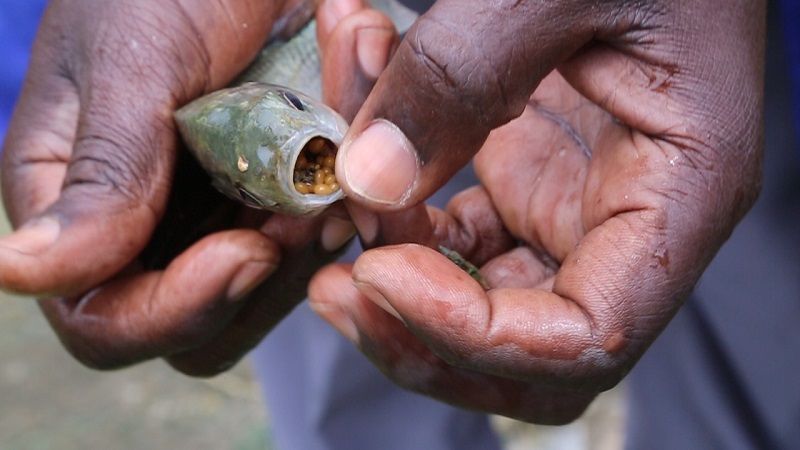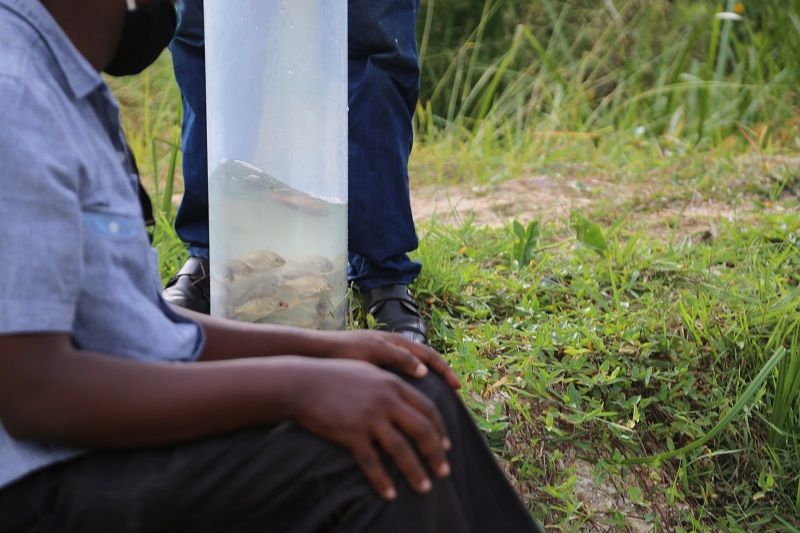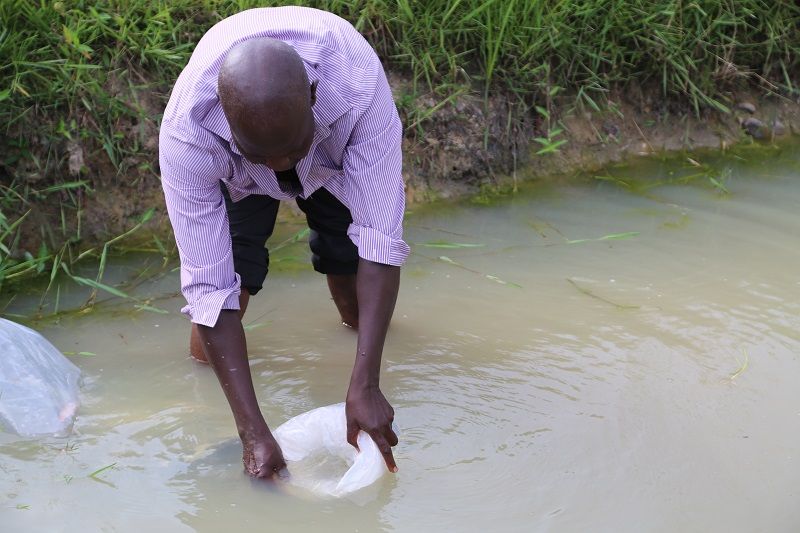Protecting the tilapia fish of the Koome Islands, Lake Victoria

Status
Critically endangered
Population
Decreasing
Scientific name
Oreochromis esculentus
Funding for this project has now finished
Guarding endangered fish species from over fishing
Lake Victoria is home to a dazzling array of fish species. The largest tropical lake in the world hosts 500 species of cichlids. These closely related fish are hugely variable in appearance, behavior and the habitats they live in. And genetic studies revealed that they likely diversified quickly, within the last 15,000 years. But now many of those species are in trouble, including Singida tilapia. It was originally the mainstay of the commercial fishery industry in Lake Victoria. From the early 1900s until the early 1980s, Singida tilapia fish provided fishermen with an income and the local communities with food. It was also considered a delicacy and a preferred food for the fishing communities who still seek it out despite it being critically endangered.
Now Singida tilapia face huge problems. The human induced threats include overfishing, habitat alteration, and competition from introduced alien species such as Nile perch. Further problems caused by agriculture and cattle grazing may also be contributing to their decline. The remaining populations are limited to a few isolated spots around Lake Victoria. Unfortunately, in most of these areas, the fishing community is not aware of the conservation status of the species and have started overexploiting it without notice.
How we’re helping the tilapia fish
William Isebaiddu is leading a team of conservationists in Uganda to tackle the threats facing Singida tilapia and halt their decline. They have set up a breeding programme in the lake to increase fish numbers quickly. Wild parents are being used for captive breeding and the offspring are being released back into the wild at an early stage to prevent the extinction of the species.
Breeding endangered species in captivity is a widely used technique to boost wild numbers. Lots of brood stock – or founders – will ensure that the genetic diversity of the captive population is as varied as possible. The young fish are being released into the shallows, areas that are less than 10m deep. The aim is to bolster and boost the numbers in these parts of the lake. This will produce sufficiently large populations to make them more resilient against the Nile perch which live in the deeper, more central areas.

William is also creating protected areas in the shallow waters which they will monitor regularly. By-laws are in place to protect the species but the fishermen are unaware of them. The team is engaging with the fishing communities to introduce better fishing practices designed to protect species but also ensure long-term sustainability of the fish that the communities rely on. Fish are often forgotten and over-looked. Out of sight and out of mind. We hope that, with our support, William and his team now have the tools and opportunity to turn around the fortunes of this one-widespread species.


Success for tilapia so far
William and his team from wildlife organisation Hope for Nature, have worked very hard already to restore the fortunes of Singida tilapia fish. Earlier this year (2021), they successfully released 5000 fingerlings (baby fish) into the lake. He and his team and delighted to share some of their highlights with PTES supporters.
Thank you to all our donors who helped us fund this work. You can help us support more projects like this with a donation today:
Read about William and his team in Lake Victoria:
